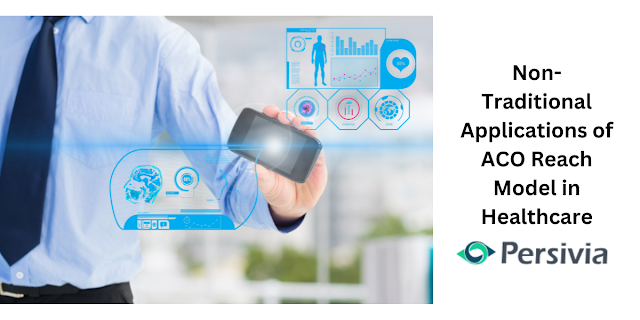ACOs have been widely recognized for their role in
improving healthcare delivery and reducing costs. The ACO Reach Model, traditionally
associated with care coordination and cost management, has found innovative
applications in healthcare beyond its conventional scope.
Before getting into non-traditional applications,
let's briefly understand the model and its primary components.
ACOs are collaborative networks of healthcare providers who voluntarily come together to deliver high-quality, coordinated care to patients. While, ACO Reach Model is a system that emphasizes the extent to which an ACO can impact patient outcomes, extending beyond immediate care provision.
Non-Traditional Applications
- Community Health
Initiatives
ACOs, leveraging their integrated approach, are
increasingly involved in community health initiatives.
Example: Implementing preventive health programs in collaboration with local
communities to address social determinants of health.
- Telemedicine
Integration
The model is adaptable to the growing trend of telemedicine,
enhancing accessibility and continuity of care.
Implementation: Utilizing telehealth platforms for remote patient monitoring, virtual
consultations, and follow-ups.’
- Behavioral Health
Integration
Addressing mental health is a crucial aspect often
overlooked in traditional healthcare models. Healthcare Organizations are
incorporating behavioral health services into their framework.
Strategies: Collaborating with mental health professionals, integrating behavioral
health assessments into routine check-ups, and ensuring a holistic approach to
patient well-being.
- Patient Education and
Empowerment
ACOs adopt strategies to empower patients through
education, encouraging active participation in their healthcare journey.
Methods: Utilizing digital platforms for educational resources, workshops, and personalized health plans.
- Precision Medicine
Implementation
Organizations are exploring the integration of
precision medicine to tailor treatment plans based on individual patient
characteristics.
Approach: Utilizing genetic information and advanced diagnostics to personalize
treatment, optimizing outcomes.
- Big Data Analytics for
Population Health Management
Utilizing the power of big data, ACOs are employing
advanced analytics to proactively manage population health.
Tools: Employing predictive modeling, data mining, and artificial intelligence
to identify health trends and potential risks.
- Partnerships with
Non-Healthcare Entities
Healthcare Organizations are forming partnerships
with organizations outside the healthcare sector to address broader
determinants of health.
Examples: Collaborating with housing authorities, educational institutions, and local businesses to create comprehensive community health solutions.
Takeaway
The ACO Reach Model, initially designed for care
coordination and cost-effectiveness, has evolved to encompass a broad spectrum
of healthcare applications. From community health initiatives to precision
medicine, ACOs are at the forefront of driving innovation and improving patient
outcomes through their extended reach in the healthcare landscape.
Learn more about the platform at Persivia. Reach out today!




No comments:
Post a Comment
Please do not enter any spam link in the comment box